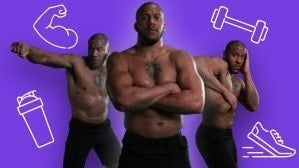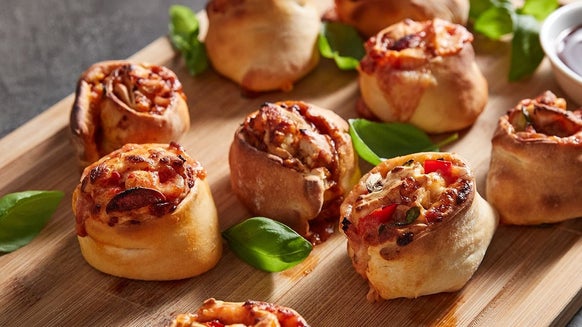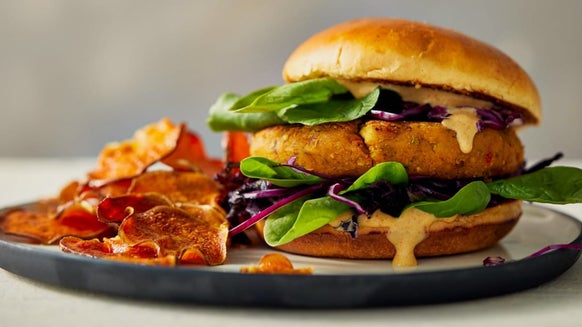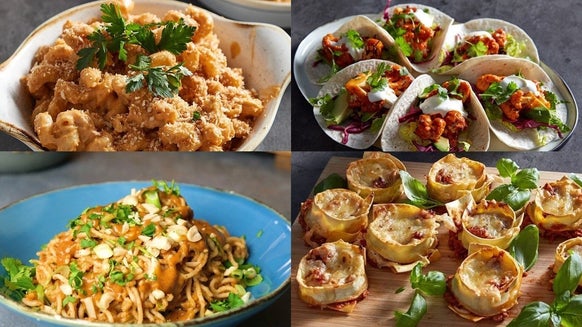
Whether it’s the holiday-comedown or the thought of summer being just around the corner, cutting fat is definitely something that will be going through your mind.
It sounds easy in principle: “I’ll just eat a bit less junk, snack a bit less and hit the gym a little harder”. Sadly, this approach won’t get you through those excruciating mid-afternoon periods when you’re desperately hungry but only just inhaled your beautifully prepared salad half-an-hour before.
Fortunately there are many easy ways to make your cut an easier trial.
#1 Shop smart, stock up and meal prep
? Keep an eye out in your local supermarket for special offers. Once you spot that they are selling that protein-heavy type of yogurt that you like (but is normally way out of your shopping budget), you need to be the person at the supermarket that throws the entire box into their trolley!
? Your freezer is also your ally when you’re on a cut. You can prepare a week’s worth of meals one Sunday evening, all calorie counted and perfectly portioned, and when you feel tired and gross on Wednesday evening you don’t even have to worry about cooking as it’ll be waiting for you.
? The benefit of shopping smarter also translates to saving plenty of cash. This will become very important when you suddenly realise that you don’t own enough vests to properly showcase your increasingly impressive summer body.
#2 Be precise and make yourself accountable
Previously, I used to weigh my food - and honestly, I had no idea what a reasonable portion looked like.
As a result, I got used to eating 300g of pasta as opposed to 150g and, more importantly, I got used to the idea of “this is what an average meal looks like”. It wasn’t. This was a particular hard lesson to learn!

As your awareness of portion sizes increases, you'll realise that your superpower for looking at food and decisively stating that “that’s
? There’s a cheap and easy solution to this conundrum. Buy yourself some food scales - they’re an invaluable tool if you’re serious about your cut!
People tend to underestimate, and it will make you less accountable for what goes in your mouth. The calories do add up quickly and you’ll start to feel really disappointed if you aren’t losing as much of your body fat as you’d hoped by the time weigh-in rolls around.
#3 Are you tracking your macros?
You could be one of the millions of people who calorie count, but stare blankly when someone talks about “macronutrients”. By calculating your macros you are keeping up with exactly how many grams of fat, protein and carbohydrate you are taking in and you can adjust accordingly for specific goals. This is where things like “low carb” or “high protein” come into play.
Lots of people find that different arrangements work better for them: You might be worried about losing those muscles you worked hard for during your bulk so you could aim to get a good amount of protein whilst simultaneously restricting your daily caloric intake. Most swear by eating 1 gram of protein per pound of bodyweight, but this is just a rough guide and you can tweak it to what suits your diet!
Others like to rely on carbohydrates to power them through the day and might be found eating ten pieces of fruit for breakfast every morning.
NOTE: Be careful with restricting your fat intake, however, as less than around 50g a day can leave you feeling very flat!
#4 Food swaps
It’s very often the little extras we add to our meals that cost us the most in calories.
Cheese and dressings, for example, can add hundreds of sneaky extra calories once we’ve prepared that perfect (and hopefully healthy) meal.

Fortunately, if you’re a little bit inventive, you can circumvent these barriers by making clever swaps. Butternut squash, for example, is so much lower in calories that potatoes and, in my humble opinion, makes a delicious mash.
If you’ve just started tracking your macros you might find it tricky to make it fit, but Greek yogurt and cottage cheese (to name a couple) could become your closest friends during your cut.
? Look for foods that give you more bang for your buck. Yes, cheese does have a pretty good amount of protein but you might find yourself running out of calories quickly.
Try mixing yogurt with
#5 Double up on your fruits and veggies
Fruits and vegetables are vital in terms of the micronutrients they offer, but they are also so low in calorie, that 200 calories of broccoli would be difficult for the average person to eat in one sitting! Compare that to a few bites of chocolate and you’ll start feeling more and more robbed by your sweet treats when you try and track them.
If you’ve found that it can be difficult to keep your produce fresh in the past, then use your freezer to its full potential!
? Bananas, for example, can be chopped, bagged and frozen. These are then ready to be thrown into a smoothie or for banana ice cream.
? Fruit and veg is just as good for you out of the freezer than cooking straight from fresh, so fill her up.
Serving a side of dark green veg with your lunch and your dinner will send your fibre intake through the roof!
#6 Liquidise!
Struggling to pound down the fruits and vegetables after taking the last piece of advice?
Fortunately, liquidising every now and then will make it extra easy for you to get those precious micronutrients in.

A good smoothie maker won’t cost much these days, and it will be an invaluable tool for your cut.
Throwing in a banana, some berries and some ice cubes with a bit of milk (or water if you’re really tight!) will be delicious and can be easily customised. You can also chuck in some frozen spinach and you’ll be getting more iron and an extra portion of veg without losing the sweetness. Or maybe you could add some oats or a scoop of nut butter if you want to add some carbs or a bit of fat and you have room to spare?
? You can even add a few grams of
#7 Up your water intake
Let’s face it: very few of us drink as much water as we should. If you’re working out this is of particular importance, as nothing works without being properly hydrated. You’ll be more tired, more irritable and definitely have less inclination to grab your gym bag as soon as you get in from the office.
? Tired at work and feeling hungry during those dreaded 11pm or 3pm moments?
Make yourself a cup of green tea, fill your
Most of us are so unfamiliar with the feeling of being hungry that we don’t really understand what hunger actually feels like. The emotion is more like mixing boredom with a need for comfort as opposed to a physical ache.
? Once you’ve gotten used to it for a week or two you’ll find yourself far less reliant on snacks than you used to be!
#8 Intermittent Fasting
Don’t want to split your daily caloric intake into three 600-calorie meals? Why not split it into two 900-calorie meals instead!

Intermittent fasting is moving from the realms of the savvy bodybuilder to normal folks thanks to new research and increased awareness. Set yourself a six hour window when you can eat (12pm-6pm tends to be practical and popular, for example) and only eat within this time frame.
? Your capacity for fat burning will increase and you may find it an easier way of doing things if you get to have a big hearty meal at 12pm rather than spreading yourself too thinly.
? Fasting doesn’t work for everyone and is dependent on your schedule but it could be a game changer if you hadn’t considered it before.
Give it a go and see how you find it!
Take Home Message
Being on a cut isn’t easy - anyone can tell you that. What these suggestions prove, however, is that there are ways to get through with your sanity intact and you won’t have to invest heavily either.
The good thing about dieting is that it forces you to be smarter and get more for less, so using it as an opportunity to clean up some bad habits and getting more organised is a great way of turning something hard into something productive!








